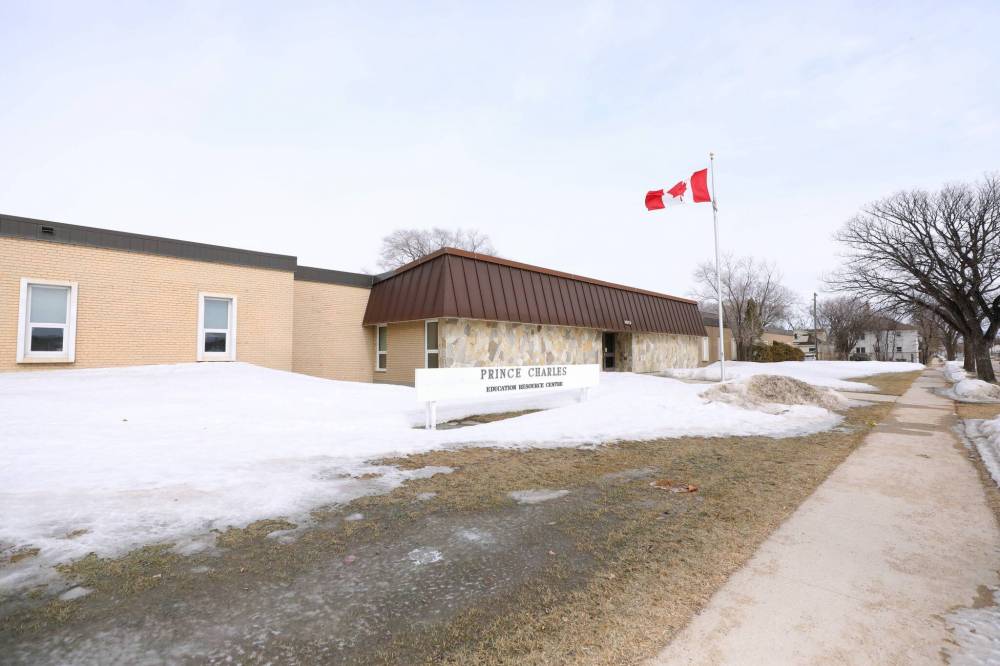School divisions to argue against paying property taxes on buildings
Advertisement
Read this article for free:
or
Already have an account? Log in here »
To continue reading, please subscribe:
Monthly Digital Subscription
$0 for the first 4 weeks*
- Enjoy unlimited reading on winnipegfreepress.com
- Read the E-Edition, our digital replica newspaper
- Access News Break, our award-winning app
- Play interactive puzzles
*No charge for 4 weeks then price increases to the regular rate of $19.00 plus GST every four weeks. Offer available to new and qualified returning subscribers only. Cancel any time.
Monthly Digital Subscription
$4.75/week*
- Enjoy unlimited reading on winnipegfreepress.com
- Read the E-Edition, our digital replica newspaper
- Access News Break, our award-winning app
- Play interactive puzzles
*Billed as $19 plus GST every four weeks. Cancel any time.
To continue reading, please subscribe:
Add Free Press access to your Brandon Sun subscription for only an additional
$1 for the first 4 weeks*
*Your next subscription payment will increase by $1.00 and you will be charged $16.99 plus GST for four weeks. After four weeks, your payment will increase to $23.99 plus GST every four weeks.
Read unlimited articles for free today:
or
Already have an account? Log in here »
Hey there, time traveller!
This article was published 29/03/2022 (1355 days ago), so information in it may no longer be current.
A fall court date has been set for Winnipeg school divisions to argue why they should not have to pay municipal property taxes on any of their buildings — not just elementary, junior high and high schools.
Under Manitoba’s Municipal Assessment Act, properties that are “used for a public school” should be exempt from taxation to a maximum exemption of 4.047 hectares.
Divisions claim that all of their non-school facilities, ranging from bus depots to education resource centres, contribute to schooling. The City of Winnipeg, however, only wants to provide exceptions to active schools.

“Schools are very different today. There’s a lot happening in the schools, in terms of all aspects of the mental, emotional, physical well-being of children,” said Mark Newman, the lawyer representing all six metro-area divisions: Winnipeg, Seven Oaks, River East Transcona, Pembina Trails, St. James-Assiniboia, and Louis Riel.
“1075 Wellington (Ave.) is an example of a property, it’s actually an old school, that was repurposed as a resource space… What this building — what the buildings all do, is they support the school divisions and the provision of the educational and other services that are provided.”
Newman said divisions have appealed numerous property evaluations throughout the years. The Board of Revision, an impartial quasi-judicial body that hears assessment appeals, has a mixed track record on such rulings.
The future of fees attached to approximately 25 division-owned buildings are at stake.
Initial hearings are scheduled for Sept. 8 and 9 at the Court of Queen’s Bench, Newman said.
Among key discussion points will be the difference between the English and French editions of assessment legislation.
While the English edition explicitly states that schools are to be exempt, the French document is vague; when translated into English, it states all properties being used “for the needs of a public school” should be exempt.
“It is a case that is very Canadian in so far as there’s contradictions between the French and English acts,” said Coun. Sherri Rollins (Fort Rouge-East Fort Garry).
While noting the courts will have the final say, Rollins — a former chairwoman of the Winnipeg School Board — said she feels these properties should be exempt because they are involved in the business of education. Audiologists, speech language pathologists and other specialists who “get students learning” work in certain buildings, she added.
Last week, city council voted to direct the public service to provide a report within 90 days of the court’s decision — if the city wins the dispute — about how much it would cost to grant divisions back the annual tax revenue from properties that house clinician offices.
“‘We see you.’ That’s the message I wanted to send to these clinicians… I think it’s a part of modern education,” said Coun. Brian Mayes (St. Vital), a former trustee in the Brandon School Division, who collaborated with Rollins on the motion.
Mayes said some of his colleagues suggested it is both a provincial and financial matter before the courts — and thus, council should not get involved, but he said he was pleased overall with the 9-5 vote (two councillors were absent). As far as he is concerned, the city is the one taxing divisions and there is a precedent in granting back fees, given the city often reimburses pro sports teams.
Todd MacKay, prairie director of the Canadian Taxpayers Federation, expressed frustration about how the disagreement is being resolved.
City, provincial and school board officials should sit down to work this out “maturely” to avoid costly court fees, MacKay said.
“There’s good debate to be had here about how best to divide these costs,” he said. “The frustrating part, from the taxpayer perspective is this is the most inefficient way to solve this debate.”
maggie.macintosh@freepress.mb.ca
Twitter: @macintoshmaggie

Maggie Macintosh reports on education for the Winnipeg Free Press. Funding for the Free Press education reporter comes from the Government of Canada through the Local Journalism Initiative.
Our newsroom depends on a growing audience of readers to power our journalism. If you are not a paid reader, please consider becoming a subscriber.
Our newsroom depends on its audience of readers to power our journalism. Thank you for your support.

